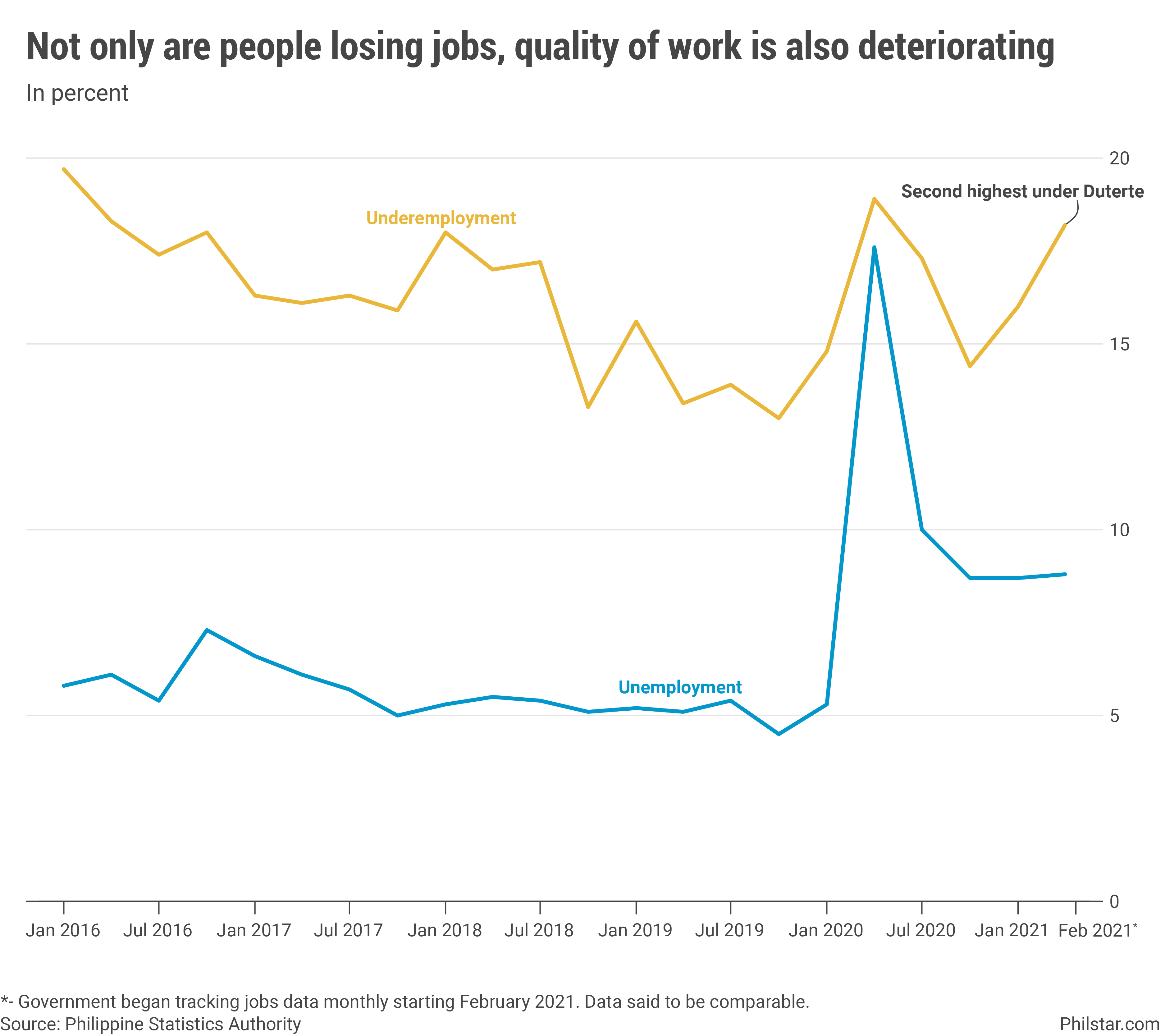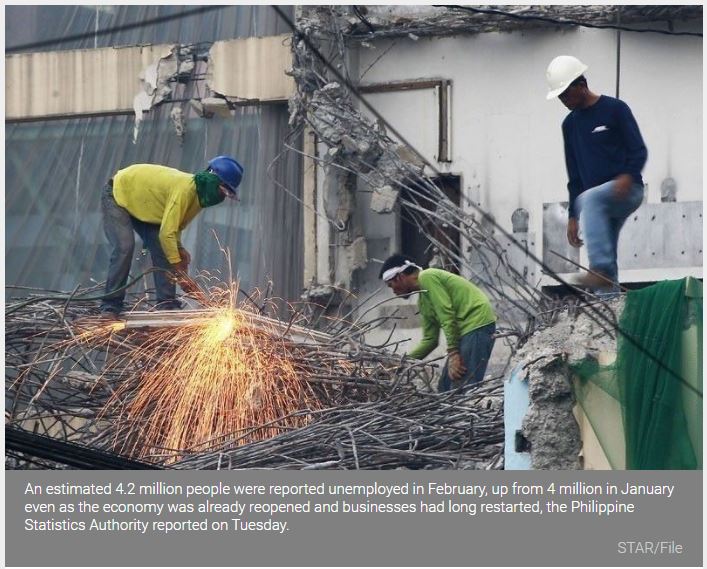Jobs in reopening barely allow Filipinos to get by hard times
MANILA, Philippines — More Filipinos went jobless and people already working were looking for bigger earnings in a sign people were merely getting by during the crisis.
An estimated 4.2 million people were reported unemployed in February, up from 4 million in January even as the economy was already reopened and businesses had long restarted, the Philippine Statistics Authority reported on Tuesday.
With more people hunting for a job, that translates to 8.8% of the labor force getting unemployed last month, up from 8.7% January and October. Last month’s jobs report was the first on a monthly basis from the original quarterly record.
Even among those employed, the living situation has worsened, no thanks to high inflation that has forced a search for more work. A total of 7.9 million Filipinos were underemployed last month, up 1.3 million from January. The underemployment rate soared to 18.2%, the highest since April last year when lockdowns prevented people from going to work.
Worse, the jobs outlook just turned bleak this month with the reimposition of enhanced community quarantine (ECQ) in Metro Manila and four urban areas that account for majority of economic output. “If we will base on the ECQ and MECQ last year, the labor force went down and unemployment went up,” National Statistician Claire Dennis Mapa said in a briefing.

Commenting on the report, economic managers boasted that the number of people employed at 43.2 million already topped pre-pandemic level in January last year but recognized that the latest ECQ was a setback. “This decision was arrived at after a careful analysis of the cost and benefit of the week-long ECQ on the people,” Finance Secretary Carlos Dominguez III, Budget Secretary Wendel Avisado, and Acting Socioeconomic Planning chief Karl Kendrick Chua said in a joint statement.
“We assure the Filipino people that the Duterte administration will not squander this opportunity to slow down the spread of the virus and recalibrate our COVID-19 response strategies,” they added.
Construction jobs falter
In February, the usual sectors that struggled from pandemic disruptions laid off more workers. Food and accommodation services, for instance, reduced workforce by 131,000 from January, as well as administrative services, 119,000. Mining and quarrying lost 34,000 jobs.
A surprise was construction, which despite the government prioritizing its infrastructure projects resulted in the lay-off of 54,000 workers month-on-month. The sector also is not paying enough, with 108,000 workers considering themselves underemployed that would have wanted bigger earnings if they have a choice.
Overall, more people are working less than 40 hours a week, supporting the high underemployment that showed workers may also be resorting to part-time work to get paid. This is a problem since this type of work often does not have job security, and does not pay for social protection and other benefits. With inflation up, this may also indicate Filipinos are barely sustaining.
“The worrisome rise in underemployment is a serious concern because it indicates the poor quality of available jobs. With the country still in lockdown…, it means new jobs will not be coming soon,” said Alan Tanjusay, spokesperson for Trade Union Congress of the Philippines, a labor group.
Asked whether the government’s strategy to keep infrastructure funded is proving ineffective, Ruben Carlo Asuncion, chief economist at UnionBank of the Philippines, said it is “too early to tell. “There are projects that are hard and takes time to start,” he said in a text message.
Source: https://www.philstar.com/business/2021/03/30/2088054/jobs-reopening-barely-allow-filipinos-get-hard-times


 Thailand
Thailand




